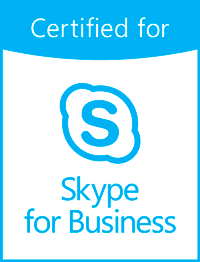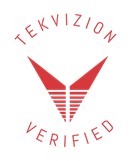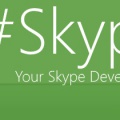Everything you need to know about the Skype for Business Certification for ISV Partner Solutions
Introduction
At WPC this year Microsoft announced that they were re-opening the certification program for ISV partner solutions and launched a new, revised website to showcase certified applications: apps.skypeforbusiness.com.
There is also a explanation page describing the program overview, its benefits and a high-level process flow.
However there was no other information for developers or software houses interested in finding out more about the program, what’s involved, how it works etc. I figured I probably wasn’t the only one with unanswered questions about the program and what to do next so I decided to approach the two certification organisations to see if I could find out more information.
I reached out to the two partners offering the certification, Wipro and tekVizion. Vimal Andrews at tekVizion responded and was kind enough to give me nearly an hour of his and his colleague’s (Tracy Venters) time. It’s thanks to them offering their time so graciously that I’m able to bring you the information below.
Overview – There’s actually 5 different certification programs…
 The idea of the Skype Certification Program is one of mutual benefit. An organisation of any size offering a product (either hardware or software) which complements Skype for Business can make use of an official certification process led by Microsoft to differentiate themselves in the market. They will find the marketing opportunities with Microsoft helpful; Certified products are listed on dedicated Microsoft landing pages and are seen to be safe choices by consumers because there is an implicit level of trust offered by the Microsoft badge. Certification implies that the product has been “tested” with Skype for Business and therefore any issues which may arise will be taken seriously by Microsoft’s support team. Customers don’t want to “fall between the gap” of Microsoft blaming the product vendor and the product vendor blaming Microsoft, and certification helps bridge that gap.
The idea of the Skype Certification Program is one of mutual benefit. An organisation of any size offering a product (either hardware or software) which complements Skype for Business can make use of an official certification process led by Microsoft to differentiate themselves in the market. They will find the marketing opportunities with Microsoft helpful; Certified products are listed on dedicated Microsoft landing pages and are seen to be safe choices by consumers because there is an implicit level of trust offered by the Microsoft badge. Certification implies that the product has been “tested” with Skype for Business and therefore any issues which may arise will be taken seriously by Microsoft’s support team. Customers don’t want to “fall between the gap” of Microsoft blaming the product vendor and the product vendor blaming Microsoft, and certification helps bridge that gap.
The Skype for Business Certification Program is actually made up of 5 separate programs depending on what it is you want to get certified. I found it useful to get an overview of what all the different programs are for and to see the value and differentiation of the specific program for ISV solutions.
1 – Skype for Business Service Providers
This is a certification program for service providers who offer compatible services which integrate with Skype for Business such as SIP trunking providers, provision of E-911 services and audio conferencing providers. Examples might be: AT&T & Level 3, or in the UK BT & Pure-IP. The full list of certified service providers is on TechNet: Certified Skype for Business Services.
2 – Skype for Business Infrastructure Providers
This is a certification program for OEMs who produce compatible hardware, such as gateways, SBAs, SBCs, load balancers and reverse proxies. Examples include: Audiocodes, Sonus and Kemp. The full list of certified service providers (broken down by type of device) is on TechNet: Certified Skype for Business Infrastructure.
3 – IT Pro Tools for Skype for Business
This is a certification program for tools designed to help with the deployment and management of Skype for Business. Tools are categorised by type: network pre-assesment, planning & deployment, user & policy provisioning, monitoring, reporting, troubleshooting and user survey. This is an invite-only category and Microsoft clearly values the importance these tools bring to enhancing the installation and ongoing maintenance of a Skype for Business installation. Others do too, as can be evidenced by this white paper: IT Pro Tools in Skype for Business to Ensure a Stellar Experience. Examples of providers include: Event Zero & Unify Square. This category has its own tool catalogue to allow you to filter by type.
4 – Phones and Devices for Skype for Business
Ever noticed the ‘certified for Skype for Business’ sticker on your handset or webcam? That’s this program which broadly divides into four areas: IP phones, USB AV devices, PCs and meeting room solutions. Entrants in this category are many and varied and include household names like Polycom, Logitech, Plantronics and Sennheiser. If you’re selling devices for Skype for Business then inclusion in this category is practically a must. Again, this category has its own subsites: browse IP phones | browse devices and PCs | browse meeting room solutions.
5 – ISV Partner Solutions for Skype for Business (NEW!)
This is the program which was announced at WPC and sits alongside the existing programs outlined above. It recognises the positive impact which third party software solutions can have on Skype for Business installations and how they can improve productivity and enhance end-user experiences. This isn’t a new idea: it was shuttered when Skype for Business was launched and only recently re-opened. Certified tools fit into one of the following categories: contact centre applications, call recording applications, compliance tools, analytics applications and operator consoles. Examples of certified solutions today include: Clarity Connect (contact centre), Verba (call recording) and Enghouse (operator console). It is these solutions which are listed in the newly launched catalogue at apps.skypeforbusiness.com.
Why?
So why get certified? Apart from the obvious marketing differential there’s actually another reason which Microsoft cares a lot more about (and why they run the program at all). The objective of the certification process is to ensure that the partner solution does not have a detrimental impact on the performance of Skype for Business and does not introduce bugs into Skype for Business behaviour. It comes back to the “customer falling between the gaps” problem I mentioned earlier. If a customer presents Microsoft Support with a Skype for Business bug and they are also using a third-party solution which has been certified then Microsoft can use the information about the testing carried out during the certification process to help diagnose the issue rather than simply arguing that it’s the third party vendor which is at fault. The result is happier customers and faster support fixes when using certified solutions.
How does it all work (and a bunch of other questions)?
If you’re like me, at this point you probably have a lot of unanswered questions about the process, so hopefully this section will help answer them. Some of these questions jump into specific detail so it’s worth remembering that any detail is likely to be specific to testing carried out by tekVizion and may not be relevant for testing done by other certification partners. Do your homework before committing!
So do you test a product or a release?
The certification is awarded to the product, but the specific release is important as the testing will be done against a particular release. Minor releases such as bug patches etc. don’t affect certification, but there is an expectation that if a product undergoes a significant version change (such as a major version increase) then it is re-submitted for certification. The certification must be in line with your latest major release.
How does the testing actually take place?
There’s an initial technical kick-off meeting where you will be introduced to the engineer who will be testing your solution. This engineer is like your “customer” for the purposes of the testing, complete with Skype for Business environment, users and kit. You will work with the engineer to deploy, install and configure your solution in this environment. This setup phase is a joint process, and is not part of the actual testing – only when the installation and configuration is complete will the engineer carry out the test.
Can I help the engineer carry out the tests?
No, the engineer must carry out the tests without assistance. It’s possible to change configuration settings in order to alter how your solution operates, but crucially there can be no code changes once the testing starts.
Will I need to submit my source code for review?
No, the solution is evaluated as a black box. There is no requirement to submit or explain source code.
Can I see what the tests are going to be before the testing starts?
Yes. Once you are accepted into the certification program then you will be sent a test plan and given time to review it.
I’m worried my solution will fail because of a small or simple bug. If I fail certification will I have to start again from scratch?
tekVizion recognises that this is a common problem and have come up with a solution. Prior to the actual test the engineer will execute a “dummy run” of the tests with you, so that if there are any problems you can address them before the testing starts. At this stage you can work with the engineer to see the results of the tests, update the application and apply bug fixes. This pre-run is designed to maximise your chances of success when the actual certification testing takes place.
What developer technologies are supported? Which SDKs? On-Prem or Office365?
There are no restrictions on the technologies used, and both on-premise and Office365 solutions are supported. However, emphasis in certification is given to those solutions which align with the direction Microsoft are taking to provide cloud-first mobile-first solutions. That’s not always possible with the current set of tools which Microsoft gives Skype for Business developers (and certification will not penalise where it’s not possible to support particular configurations) but as they are made available you should expect certification to increasingly demand a cloud-first mobile-first approach.
What does the certification cost?
The cost is determined by the category which your solution falls into as some solutions are more complex than others. Rather than publishing costs here which are likely to become out of date you should contact the certification providers directly for costs.
How long does certification take?
Clearly a large part of the certification process depends on the availability of the solution provider to be available to install and configure the solution and answer questions. However, it’s possible to complete certification in around a month. Roughly speaking it takes about a week to set up the agreement with the solution provider, the certification provider and Microsoft, and for any NDAs to be processed. Once the NDA is in place details of the test plans can be shared and reviewed which normally takes another week.
What do I get back from the certification?
Apart from the certification itself you will receive a copy of the test results. You will also receive a breakdown of the specific Skype for Business configuration in place whilst your solution was being tested. This can be a useful document to include in your pre-requisite material as it defines a “known good” configuration of Skype for Business which your solution has been proven to work with. Following a successful certification the certification provider will inform Microsoft who will make your application available on the solution catalogue on TechNet.
 In addition to this, tekVizion provides a guarantee of their certification process for a period of 2 years from certification. During that time if a customer finds an issue which impacts the behaviour of Skype for Business and the customer is using a configuration and setup that has been tested tekVizion will provide up to 4 hours of engineering support to help resolve the issue. You can find more information about this guarantee on the #tekVizionVerified Guarantee page and also see a list of verified products on their application page (search for ‘Skype for Business’).
In addition to this, tekVizion provides a guarantee of their certification process for a period of 2 years from certification. During that time if a customer finds an issue which impacts the behaviour of Skype for Business and the customer is using a configuration and setup that has been tested tekVizion will provide up to 4 hours of engineering support to help resolve the issue. You can find more information about this guarantee on the #tekVizionVerified Guarantee page and also see a list of verified products on their application page (search for ‘Skype for Business’).
About tekVizion
tekVizion are one of the two partners offering the Skype for Business ISV Partner Solutions certification. They are an independent expert in business communications and act as an enabler between different technology providers. They provide certification for (among others): Cisco, Shortel, Mitel, NEC, Panasonic, Unify and Microsoft. They work with large organisations to certify a pipeline of manufactured products, but also with small ISVs looking to become certified in their industry. As well as their certification programs they also provide hands-on lab environments in a range of different configurations to allow for testing or training. This service is called onTap and allows customers to setup a number of environments with specific configurations and then access them via a web-based portal.
Thanks again to tekVizion for their time in helping me put this post together.










Too bad no one bothered to certify (aka test) Skype for Business. One of the most frustrating pieces of software I have ever had the misfortune of having to work with.